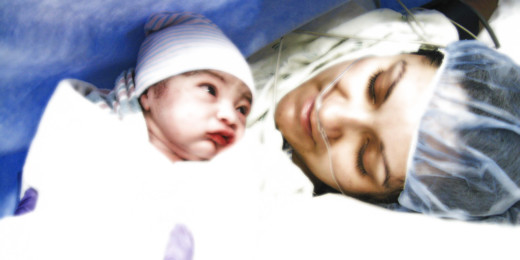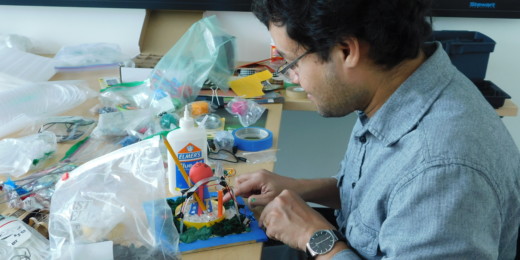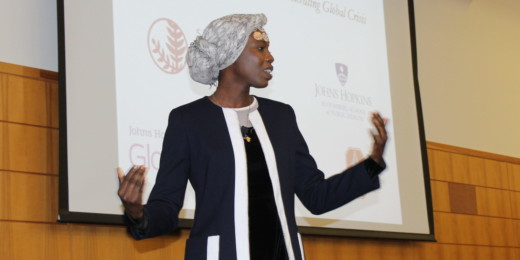Before becoming a hematologist, Tamara Dunn performed “off-off Broadway” and fronted a funk band. Now, she works to foster diverse communities in medicine.
Month: April 2019
Music therapy helps young patients feel better
The music therapy program at Lucile Packard Children's Hospital Stanford brings hope and healing to young patients in need of an interlude of inspiration.
Tapping patients’ wisdom for C-section pain management
Women scheduled for C-sections know the levels of pain relief they'll need, and are happier with their experience if given a choice.
The future of genomics: A podcast featuring Stanford geneticists
Stanford geneticists discuss the future of genomics, including the importance of studying diverse populations for medical research.
How drug-resistant bugs grow in CF patients’ lungs
Some viruses help drug-resistant bacteria grow in the lungs of cystic fibrosis patients, new Stanford research shows.
What needs to be said about mental health in medicine
A soon-to-graduate medical student talks about the challenges of studying and practicing medicine and encourages doctors-in-training to ask for help when they need it.
Can AI improve access to mental health care? Possibly, Stanford psychologist says
A Stanford psychologist discusses the future of psychiatric artificial intelligence, including the challenges and potential benefits for AI-based mental health assessment.
Experimenting — and playing: A workshop on creativity
Award-winning artist Joel Slayton led a workshop to spur Stanford biomedical researchers to tap into their playful side by building a nest for a toy drone.
First to help refugees: An event featuring medicine, policy and poetry
Rise with Refugees, held recently on campus, featured slam poetry and discussions about how to improve the lives and health of refugees.
Promising finding for people with Type 2 diabetes and kidney disease
Results from a multi-center clinical trial show that a drug lowers the risk of kidney failure by a third in people with Type 2 diabetes and kidney disease.
In developing nations, what affects resilience in children? Study in Pakistan offers clues
A Stanford-led study of preschoolers in Pakistan identifies three factors that can help kids develop executive function and resilience.
Roommates’ exchange fuels research collaboration
Recent Stanford research on the importance of a particular gene in aging can be traced to a casual conversation between roommates.
MyHeart Counts health data released for external research
Scientists from the MyHeart Counts research study have released data from 50,000 participants to enable additional investigations.
NASA Twins Study: A tale of two Kellys
NASA and collaborating institutes, including Stanford, have examined the molecular and genetic differences between two twin astronauts.
Flagging a cholesterol-raising disease using AI
Stanford researchers have created an algorithm to detect familial hypercholesterolemia, a hard-to-diagnose genetic disease.
CRISPR yields new potential “bubble boy” gene therapy
Stanford scientists and collaborators have harnessed CRISPR to replace the mutated gene underpinning the devastating immune disease, SCID-X1.
















